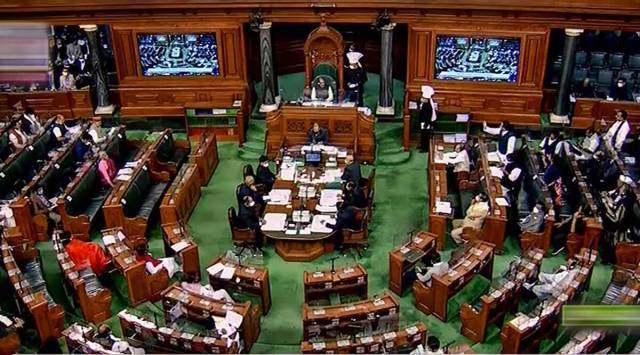Insurance Bill 2023 unlikely to be taken up during Monsoon Session
A captive insurance company would have enabled a business group to set up an inhouse wholly-owned subsidiary insurer to provide risk mitigation services for its parent company or related entities.
 There is a proposal that an applicant may apply for a composite license enabling any type of insurance business. This means an insurer can do both life and non-life business with a composite licence. A composite licence will allow insurers to undertake life and health insurance via a single entity.
There is a proposal that an applicant may apply for a composite license enabling any type of insurance business. This means an insurer can do both life and non-life business with a composite licence. A composite licence will allow insurers to undertake life and health insurance via a single entity. The insurance sector may have to wait further for major reforms in the segment. The Insurance Bill 2023, considered as a pathbreaking Bill, is unlikely to be passed anytime soon as the Government is not expected to table it in the ongoing monsoon session of the Parliament which is functioning the last few days, sources said.
This means major reforms proposals like composite license, differential capital, reduction in solvency norms, issuing captive license, change in investment regulations, one-time registration for intermediaries’ and allowing insurers to distribute other financial products, earlier announced by the government for seeking public comments, will remain shelved.
The proposed amendments suggest that the minimum paid-up capital can be different and specified by IRDAI considering the size and scale of operations, class or subclass of insurance business and the category or type of insurer. This means the paid-up capital required to start general, life or standalone health insurance business at Rs. 100 crore and for reinsurance business Rs 200 crore will go.
There is a proposal that an applicant may apply for a composite license enabling any type of insurance business. This means an insurer can do both life and non-life business with a composite licence. A composite licence will allow insurers to undertake life and health insurance via a single entity.
A captive insurance company would have enabled a business group to set up an inhouse wholly-owned subsidiary insurer to provide risk mitigation services for its parent company or related entities.
There were earlier indications that the government will table the Insurance Bill 2023 in the monsoon session of the Parliament, a major move that would have deepened the insurance sector. Earlier, the government had decided repeal ` The Insurance Act 1938’ by passing ‘Insurance Bill 2023’ in the Parliament. The Department of Financial Services (DFS) had extensively worked on preparing the ‘Insurance Bill 2023’ in the last few weeks with the hope that it may be tabled in the monsoon session.
The Union government is likely to discuss a total of 31 bills in the current packed Parliament session, but ‘Insurance Bill 2023’ for which the government has earlier sought approval of the Union Cabinet, is not included in the list.
Some of the Bills which are listed for discussion in the Parliament are: The Digital Personal Data Protection Bill, 2023, the National Dental Commission Bill, 2023, the Drugs, Medical Devices, and Cosmetics Bill, 2023, the Registration of Births and Deaths (Amendment) Bill, 2023, the National Nursing and Midwifery Commission Bill, 2023, the Forest (Conservation) Amendment Bill, 2023, the Biological Diversity (Amendment) Bill, 2022 and the Mediation Bill, 2021.
The enacting of the Insurance Act 2023’ by repealing the Insurance Act 1938 will be a simple exercise as it doesn’t involve any complex changes.
The government decided to repeal the `Insurance Act 1938’ as it has undergone many changes since its inception and has become cumbersome and complex for common people. Moreover, the legislative move to replace the `Insurance Act 1938’ is in the line with the government’s ongoing overall exercises involving review of all pre-Independence Acts from the point of view of their utility and relevance, sources said.
The government now wants that the entire legal code of the country should remain purely Indian and existing laws made by a legislature of the pre-Constitution era should be replaced with laws made by the legislature which is in place post-independence. The government had already dropped its earlier plans to amend the IRDAI Act 1999 that would have ensured major reforms for the Indian insurance sector.
Insurance regulator IRDAI is now pushing to implement two high tech projects – Health Claims Exchange and Bima Sugam – to deepen insurance penetration and simplify the claim procedures. The exchange platform will digitize and simplify the process of filing health insurance claims. Bima Sugam is an online market where all insurance requirements, including those for life, health, and general insurance (including motor and travel) will be met.





- 01
- 02
- 03
- 04
- 05


























